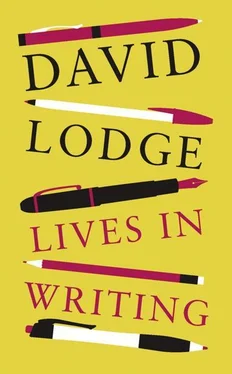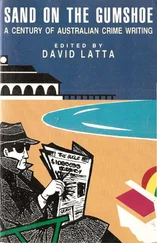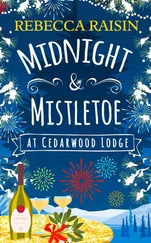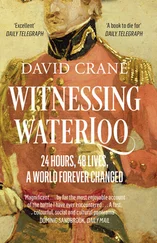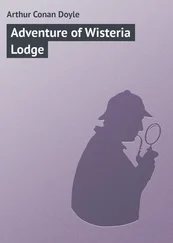Greene kept his word and did not return to Russia until 1987, when he participated in a peace conference convened under the regime of Gorbachev, whom he admired and wished to support. He made a speech improbably celebrating an alliance between Catholics and Communists. ‘We are fighting together against the death squads in El Salvador. We are fighting together against the Contras in Nicaragua. We are fighting together against General Pinochet in Chile. There is no division in our thoughts between Roman Catholics and Communists.’ This rhetoric blatantly ignored a division within the clergy and laity of the Roman Catholic Church, between conservatives who often supported oppressive right-wing regimes, and those on the political left influenced by liberation theology. Greene’s tendency to support any Latin American political movement that was ideologically leftist and hostile to the USA often led him into an uncritical alliance with politicians who were as ruthless in their methods as those they opposed. Sherry has done his homework in this area, and even if he tells you more than you really want to know about the political history of Cuba, Haiti, Panama and the rest, he does enable an informed assessment of Greene’s treatment of these matters in his novels and reportage.
Describing the novelist’s surprisingly warm friendship with the populist leader of Panama, General Omar Torrijos, in the five years preceding his death in a suspicious air crash in 1981, Sherry observes that ‘as Greene got older he seemed to take more risks, made up his mind in favour of those leading dangerous lives’. One might also cite his fascination with guerrillas and revolutionaries in books like The Comedians and The Honorary Consul (probably the best of the late novels). But one must bear in mind that all this time he was regularly reporting on his travels to the British Secret Service. Sherry adds little to what he revealed in the second volume about this topic, but Yvonne Cloetta is unequivocal in conversation with Marie-Françoise Allain: ‘What I can tell you is that, to the very end, he worked with the British Services.’
This puts Greene’s provocative public support for revolutionary struggle in a rather different perspective. It also raises a question which Sherry largely ignores: Greene’s attitude to British politics. In his second volume Sherry reported in a footnote that Greene voted Conservative in the general election of 1945 — ‘the socialists are such bores,’ he told his mother in explanation — a rather extraordinary fact when one considers that almost everybody in the country of even mildly progressive views voted Labour on that occasion. In the third volume we learn that Greene confessed to Catherine, whose husband was a Labour parliamentary candidate, that he celebrated the defeat of that party under Hugh Gaitskell in 1959 with a slug of whisky while in a plane over Canada. Yvonne Cloetta recalls that he was delighted by Mrs Thatcher’s victory in 1979, explaining, when she expressed surprise, ‘It doesn’t make a great difference with us, Labour or Conservative, in day-to-day life, or even in politics, but I’m pleased mainly because, for once, it’s a woman.’ It’s difficult to reconcile these laid-back attitudes to British politics with those Greene struck on the international stage. I have not changed the opinion I expressed in an earlier essay about Greene, that his interventions in politics, both public and secret, were not driven by any coherent ideological conviction, but were essentially personal, emotional, and opportunistic in motivation.
Greene’s religious views are just as difficult to determine. He ‘was ever in a confused state about the condition of his faith’, Sherry remarks, but this was perhaps more forgivable than his political inconsistencies. Few of us, whether we define ourselves as religious believers, ex-believers, or non-believers, are completely consistent in our answers to the ultimate questions about life and death. Even convinced atheists have been known to light a candle in a church on occasion. (Tony Harrison has a fine poem on the subject.) It was Greene’s fate, however, to have to act out his uncertainty on the stage of his celebrity. A Burnt-Out Case was an oblique announcement that he no longer believed in the letter of Catholic dogma; in due course he was more explicit in interviews, notably one with John Cornwell in the Catholic weekly, The Tablet , in September 1989, where he described himself as a ‘Catholic agnostic’. In another interview he described himself more oxymoronically as a ‘Catholic atheist’. He drew a distinction between ‘belief’ which he had lost, and ‘faith’ which he retained, though the latter always seemed to me more like a wistful kind of hope that the whole Christian myth might improbably turn out to be true.
Sherry, who describes himself as a lapsed Catholic, suggests that in his later years Greene was edging back towards the fold. ‘Greene was concerned about his promiscuity, wanted forgiveness to escape punishment in hell and be received in the arms of God.’ The main evidence for this bold assertion is Greene’s curious relationship with the Spanish priest Fr Leopoldo Duran, which inspired the whimsical fable Monsignor Quixote (1982) and which Duran himself described in his memoir, Graham Greene: Friend and Brother (1994). For many years Greene would spend a week or two with him in the summer, being driven about the Spanish countryside, always ending up at the monastery of Osera. On Sundays during these trips, or when staying in the flat in Antibes, Duran would say mass for the two of them, Greene told Cornwell — adding ambiguously: ‘And to please Fr Duran I make a confession now.’ In his memoir, Duran describes how he was summoned by Greene to his deathbed and administered the last sacraments, and asserts that Greene died a fully reconciled member of the Church. Yvonne Cloetta, however, gives a rather different spin to the episode: ‘I had indeed suggested summoning his friend, the Spanish priest, Leopoldo Duran. He raised his hand casually and said, “Oh, if you want to. .” That implied he was indifferent.’ Sherry himself did not arrive on the scene until after Greene’s death, and the details of the writer’s last days and hours are incomplete. In this respect as in so many others, this enigmatic man carried his secrets to the grave.
Graham Greene’s career as an author mostly predated our modern publicity-driven literary world of book tours, literary festivals and gladiatorial prize competitions, and in later years, apart from giving an increasing number of press interviews, he generally kept clear of it. Towards the end of his life, however, he did get involved in one very typical manifestation of this new literary culture. In 1989 the Guinness Peat Aviation Company founded a prize worth a record 50,000 Irish punts for the best book written by an Irishman or established resident in Ireland in the last three years, and invited Greene to choose the winner from a shortlist to be drawn up by a panel of distinguished judges, who laboured for many months sifting the works submitted. Greene, however, sought to overrule the judges and award the prize to a book not on the shortlist, The Broken Commandment by Vincent McDonnell, which he himself had helped to get published after it had been sent to him in manuscript by McDonnell’s wife. This caused huge consternation, anger and embarrassment, and the crisis was only resolved by giving a special prize (in fact funded out of Greene’s pocket) of 20,000 punts to McDonnell, while John Banville received the main prize for The Book of Evidence , but the controversy and recriminations continued for some time. It was a tragi-comic episode which took its toll on Greene and may have hastened his death (which like Catherine’s was caused by leukaemia). ‘Dublin killed me,’ he said to Sherry later. Sherry argues plausibly that Greene adopted McDonnell as a kind of literary son and channelled into his cause some of the emotion generated by his own failure to win the Nobel Prize for Literature. He was denied this accolade year after year, partly because of the implacable hostility of one Swedish Academician, Arthur Lundkvist, but also because other members of the academy thought he was more of an ‘entertainer’ than a ‘serious’ writer. That was a grave misjudgement. It is true that Greene used throughout his career the structures of the adventure stories he read in his childhood and youth, which accounted in part for his wide readership. But he combined his page-turning narrative technique with a unique and unsettling vision of the world which subverted and transformed the stereotypes of popular fiction. He was also a master of English prose (something which Scandinavian readers are perhaps not able fully to appreciate).
Читать дальше
